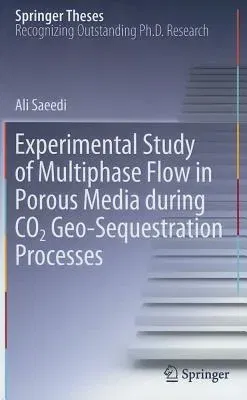Ali Saeedi
(Author)Experimental Study of Multiphase Flow in Porous Media During CO2 Geo-Sequestration ProcessesHardcover, 5 January 2012

Qty
1
Turbo
Ships in 2 - 3 days
In Stock
Free Delivery
Cash on Delivery
15 Days
Free Returns
Secure Checkout

Part of Series
Springer Theses
Part of Series
Springer Theses: Recognizing Outstanding Ph.D. Research
Print Length
184 pages
Language
English
Publisher
Springer
Date Published
5 Jan 2012
ISBN-10
3642250408
ISBN-13
9783642250408
Description
Product Details
Author:
Book Format:
Hardcover
Country of Origin:
NL
Date Published:
5 January 2012
Dimensions:
23.62 x
15.75 x
1.78 cm
ISBN-10:
3642250408
ISBN-13:
9783642250408
Language:
English
Location:
Berlin, Heidelberg
Pages:
184
Publisher:
Weight:
430.91 gm